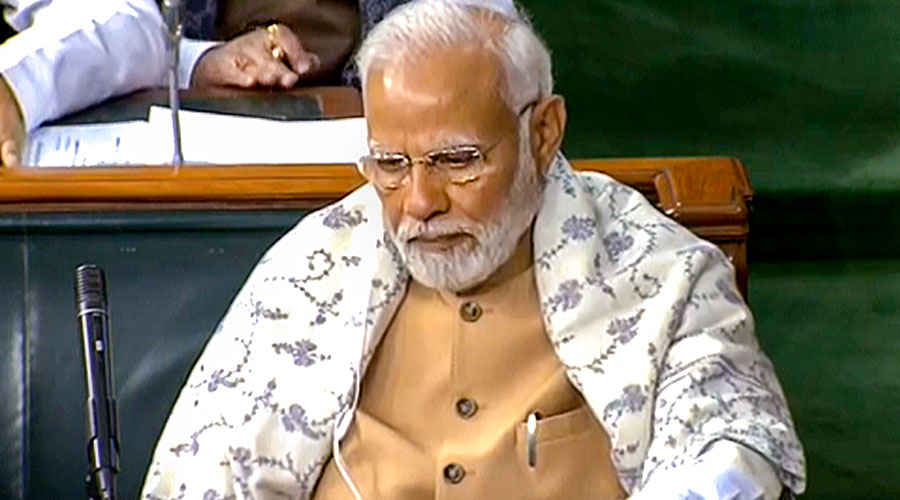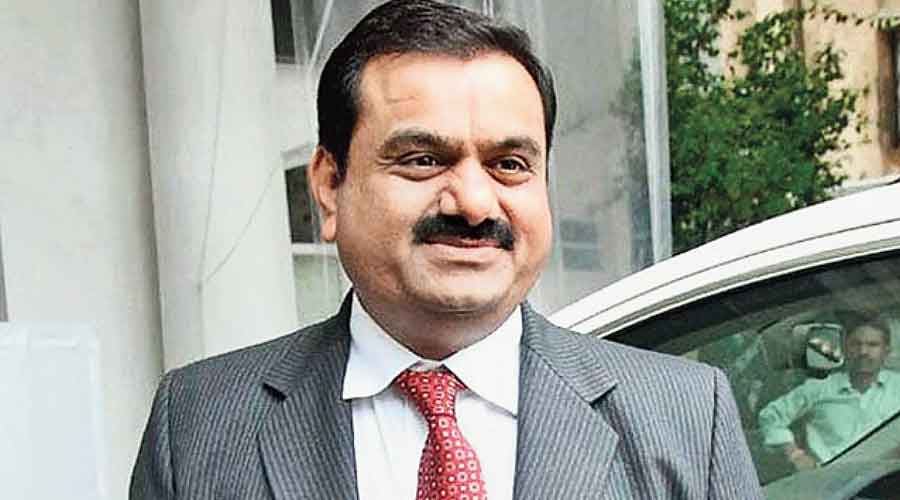The Financial Times has examined the consequences of the Gautam Adani affair for corporate India and for Narendra Modi in “The Big Read”, its 1,800-word weekly offering on a major issue for readers of one of the world’s premier financial newspapers.
In “The Adani affair: the fallout for Modi’s India”, it brought readers up to speed by recalling how the controversy began just as Adani’s ports division had completed a $1.2-billion deal to take over Haifa in Israel.
The report, bylined “John Reed and Benjamin Parkin in New Delhi” with “Additional reporting by Jyotsna Singh”, said that “back in India, on the Bombay Stock Exchange and in Adani’s headquarters of Ahmedabad, the financial future of his eponymous group was on the line”.
It gave the reason: “Hindenburg Research, a New York-based short seller, had the previous week published a bombshell report accusing the 60-year-old’s businesses of engaging in ‘brazen stock manipulation and accounting fraud’.”
It pointed out: “The Adani group rejects those allegations absolutely. But even as he was preparing to sign the Haifa deal, a $2.4bn share offer by his flagship Adani Enterprises was doing little to stem the collapse in his companies’ share prices.”
The paper went on: “Apart from the future of the billionaire and his business empire, something bigger is on the line: India’s probity in corporate governance and pursuit of a development model in which the state has entrusted a few ultra-rich men with running India’s infrastructure and pioneering investments abroad.”
“The Adani Group acknowledged as much when it portrayed the short seller report as ‘not merely an unwarranted attack on any specific company but a calculated attack on India, the independence, integrity and quality of Indian institutions, and the growth story and ambition of India’.
“The storm surrounding Adani comes during a proud year for the country, as it is set to become the world’s most populous nation and chairs the G20 group of leading economies. The fallout risks damaging the country’s status as a top pick of foreign banks’ emerging markets desks.”
Charlie Robertson, global chief economist with Renaissance Capital, told the paper: “India has been the relative safe haven market, and the Adani accusations are a cold shower for domestic and foreign investors.”
In Robertson’s opinion, if regulators and journalists are now empowered to probe any alleged wrongdoing then India could emerge “healthier in the long term”.
The FT said that “both the government and regulators have so far stayed all but silent on the matter. If the allegations are proved to be true, it would be an embarrassment for Prime Minister Narendra Modi, who has longstanding ties to Adani himself, and a significant risk for the stateowned banks and insurers invested in Adani’s companies.”
It gave some background on the relationship between Adani and Modi: “Adani became one of Modi’s biggest champions in business, as he built a local industrial empire that helped the future prime minister sell Gujarat as an economic model for India.
Their proximity was epitomised when Modi flew in an Adani jet after he was elected to national office in 2014.
“Adani has been a zealous champion of Modi’s agenda since he came to power, ploughing billions of dollars into areas the government deems priorities. These have included simultaneously investing in mining coal — which India wants to meet fast-growing power demand — and renewable power, a longer-term priority as India sets ambitious targets to decarbonise its economy.
“This business strategy has proved lucrative, with Adani’s net worth rising from about $7bn in 2014 to more than $100bn before the Hindenburg report, making him one of the world’s richest people.
“But the pace of his companies’ growth has proved a source of increasing scrutiny at home and abroad, with critics alleging that his proximity to Modi has paid off in leniency by regulators who allowed him to muscle aside rival businesses.”
It said: “Adani’s relationship with Modi has become a leading attack line of India’s opposition, who have sought to portray the relationship as evidence of cronyism at the highest levels of government, something both sides deny.”
The paper looked at how the story had developed: “Indian journalists have in recent years probed aspects of his group’s operations that raised questions, including its debt load, the presence in its shareholder base of funds that almost exclusively held Adani stock, and its links to offshore vehicles based in Mauritius, a tax haven popular with rich Indians.
However, reports were carefully worded in a country where editors rely on big corporate advertisers, and the government brooks little criticism.
“Hindenburg showed no such moderation. In its report, published on January 24, the short seller claimed, among other things, that the tycoon’s empire used Mauritius-based funds to conceal the true extent of the family’s ownership of Adani companies listed in Mumbai, thus skirting rules governing how much stock insiders can own.
“It further alleged that Adani’s brother Vinod Adani controls 38 Mauritius-based entities that have moved billions of dollars into public and private Adani companies in India, and that the group’s linked offshore entities made its listed companies appear more creditworthy, allowing them to borrow more.
“In a rebuttal that ran to more than 400 pages, Adani on Sunday rejected Hindenburg’s claims as baseless, questioned its motives, and likened the short seller to a ‘sea pirate’.”
Examining the political fallout from the Adani affair, the FT speculated: “The question now is how much Adani’s proximity to Modi will protect him — and if it does, what that says about the systemic rigidity of India’s institutions today.
“At India’s executive level, a sense of omerta prevailed. Some leading CEOs contacted by the FT to share their views about Adani’s crisis declined, even under condition of anonymity.”
The FT did acknowledge that “beyond the Adani affair, the outlook for India Inc is positive. Finance minister Nirmala Sitharaman presented a budget in parliament on Wednesday in which she described India’s fast-growing economy as a ‘bright star’, and announced plans to spend $122bn on capital expenditure in the coming year.
“But Adani will need to restore its investors’ confidence if it wishes to retain its position as a master builder in Modi’s India, and profit from some of this. All eyes will now be on the company’s, and market regulators’, further moves.”
The FT talked to Anurag Singh, managing partner at Ansid Capital in Chicago, who said that investors were keeping a “hawk’s eye on Indian institutions that they should not bail out Adani... and private institutions will not want to put in money at this stage. It’s a tough one to come out for the Indian group. I don’t know how they will come out of it.”












